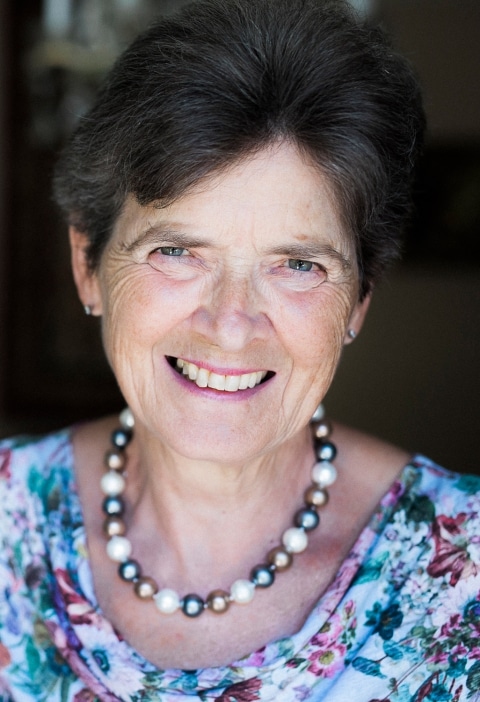How LebensGroß began
Because our roots are important.
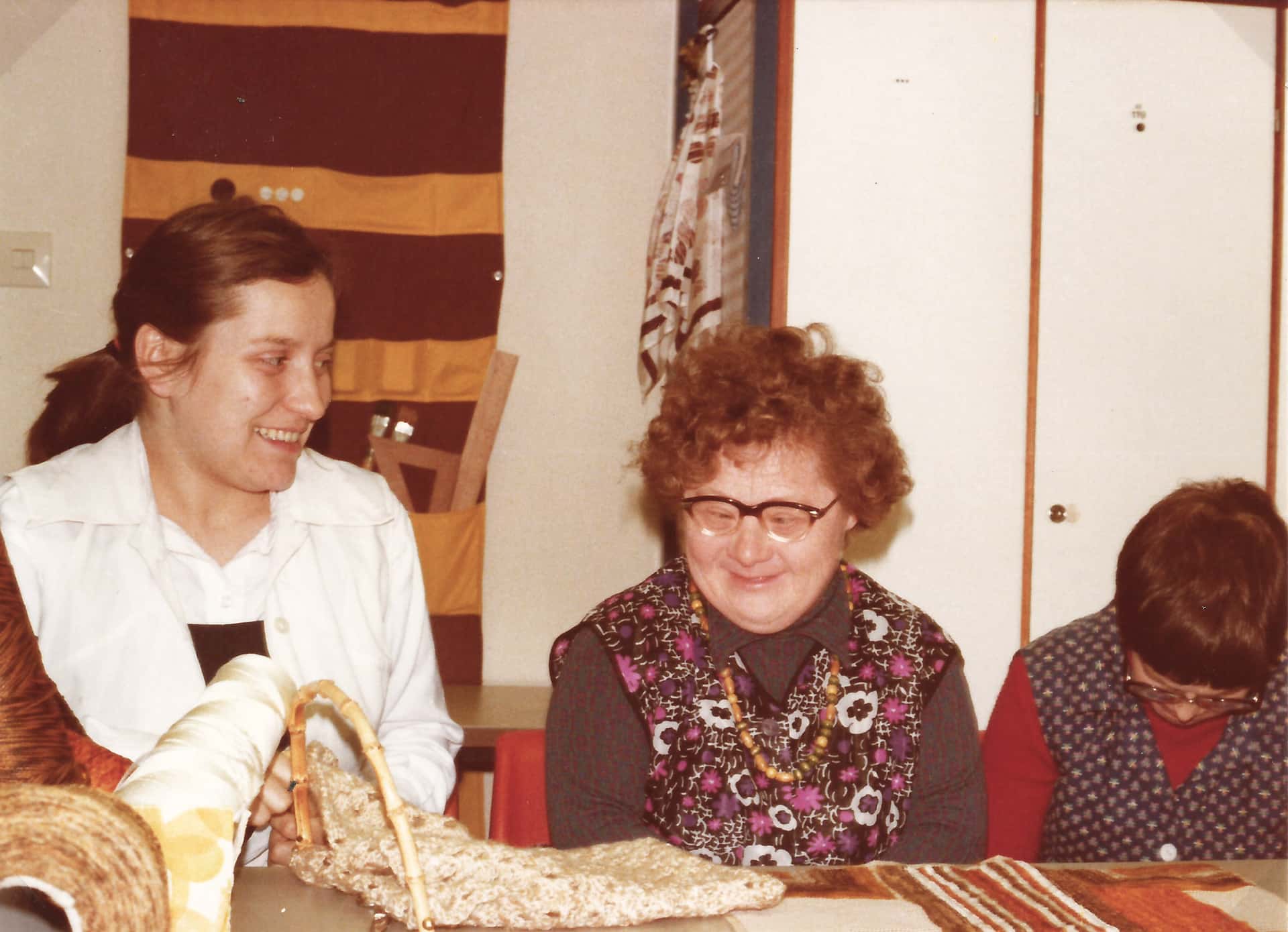
From then to now
It all started when a baby was born with trisomy 21:
Ralf Pachleitner was born in Graz in October 1943, in the middle of the Second World War. His parents, August and Maria Pachleitner, were extremely anxious, as under the child euthanasia of the Nazi era, more than 5,000 children with disabilities were murdered in 20 “Special Children’s Wards”, including one at Am Feldhof in Graz.
Little Ralf survived, but his future prospects were bleak. After the war, people with disabilities were housed in large, remote institutions. Ralf’s parents did not want to accept this. So, in 1960 they founded an “Association for People with Cerebral Disorders”, which a little later became affiliated with the German Lebenshilfe organisation.
The 60s:
The First Styrian Disability Act
After the sudden death of her husband in 1961, Maria Pachleitner became president of the association and held this office till 1987. She developed good political connections and was instrumental in the introduction of the First Styrian Disability Act, passed in 1964. The act made reference to the provision of services such as workshops and occupational therapy, but did not secure legal entitlement.
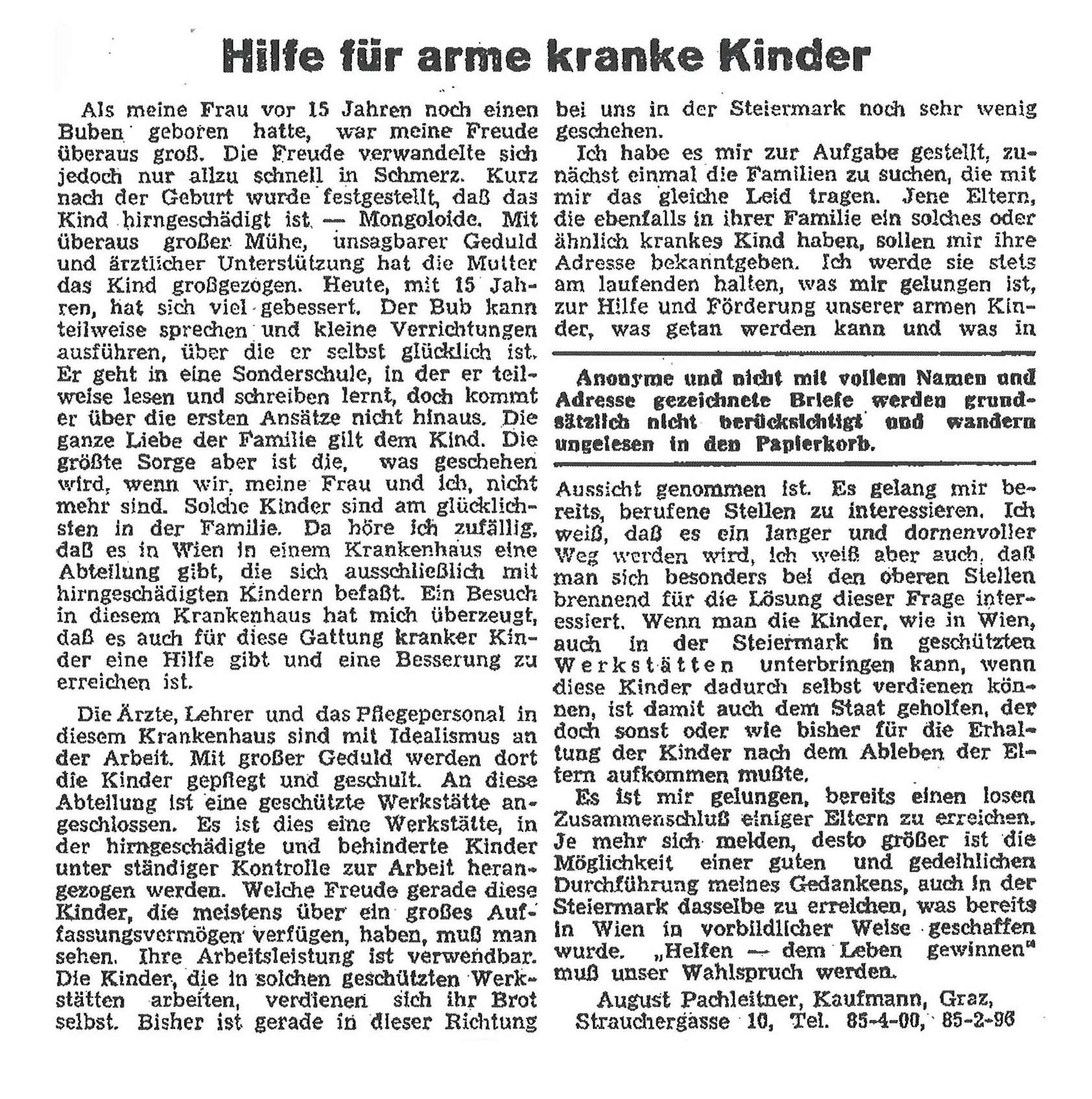
The 70s:
The first Lebenshilfe residential building
Still haunted by the horrors of the Nazi era, parents longed for a safe, protected environment for their children. After years of hard negotiations, Lebenshilfe finally acquired the Blumauer Villa in Söding. The first Lebenshilfe residential building, the “August Pachleitner Residential Home”, was opened there in 1973. Within two years it was already too small and a second house was opened on the site, which was followed by a third in 1984. At peak times, 100 people lived and worked here.
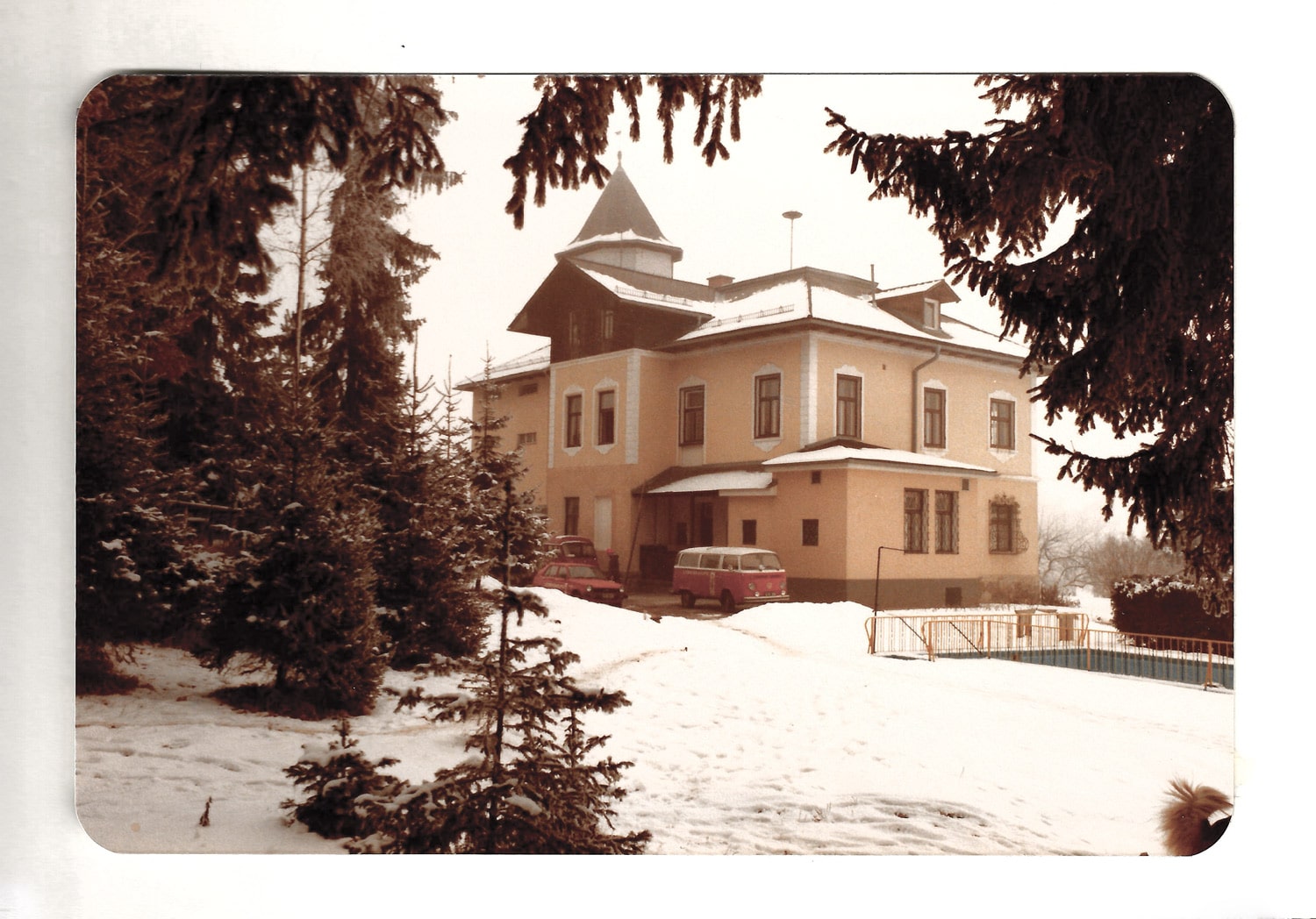
The 80s:
The path to integration
Similar parent initiatives emerged throughout Styria and teamed up with Lebenshilfe. By 1981 the rapidly growing organization needed a new structure: the Styrian Lebenshilfe organisation became the state association with various regional sections. The Lebenshilfe Graz und Umgebung (GUV) was one of the sections. This led to the creation of the Wolkensteingasse housing facility in Graz in 1991: a large project for living and working in the Casalgasse.
The children of the founders had now grown up and a new generation of young parents wanted to break away from conventional special facilities.
“Integration” had become the guiding principle at an international level, and self-determination and to “live like others” were the primary motivations. Lebenshilfe in Graz was a pioneer in Austria, opening an early support centre and the first training apartments at the end of the 1980s.
Once again it was a new-born baby with trisomy 21 that caused his parents to become involved in Lebenshilfe. Wolfgang Vennemann was born in 1980, and it is his mother, Ursula, who became such an ardent fighter for integration and inclusion. She is still president of the Lebenshilfe GUV association today. Wolfgang is amongst the first generation of Styrian children who were able to take advantage of integrative support services in kindergarten and school.
The 90s:
Opening up to the outside world
Moving into the 1990s, Lebenshilfe celebrated almost every year with the opening of a new service. Part of this process of normalisation included dismantling the Söding location, while smaller residential units were sought in the middle of towns. Significant media attention was given to school buffets and the Famoos café and patisserie, raising public awareness of people with disabilities and their work.
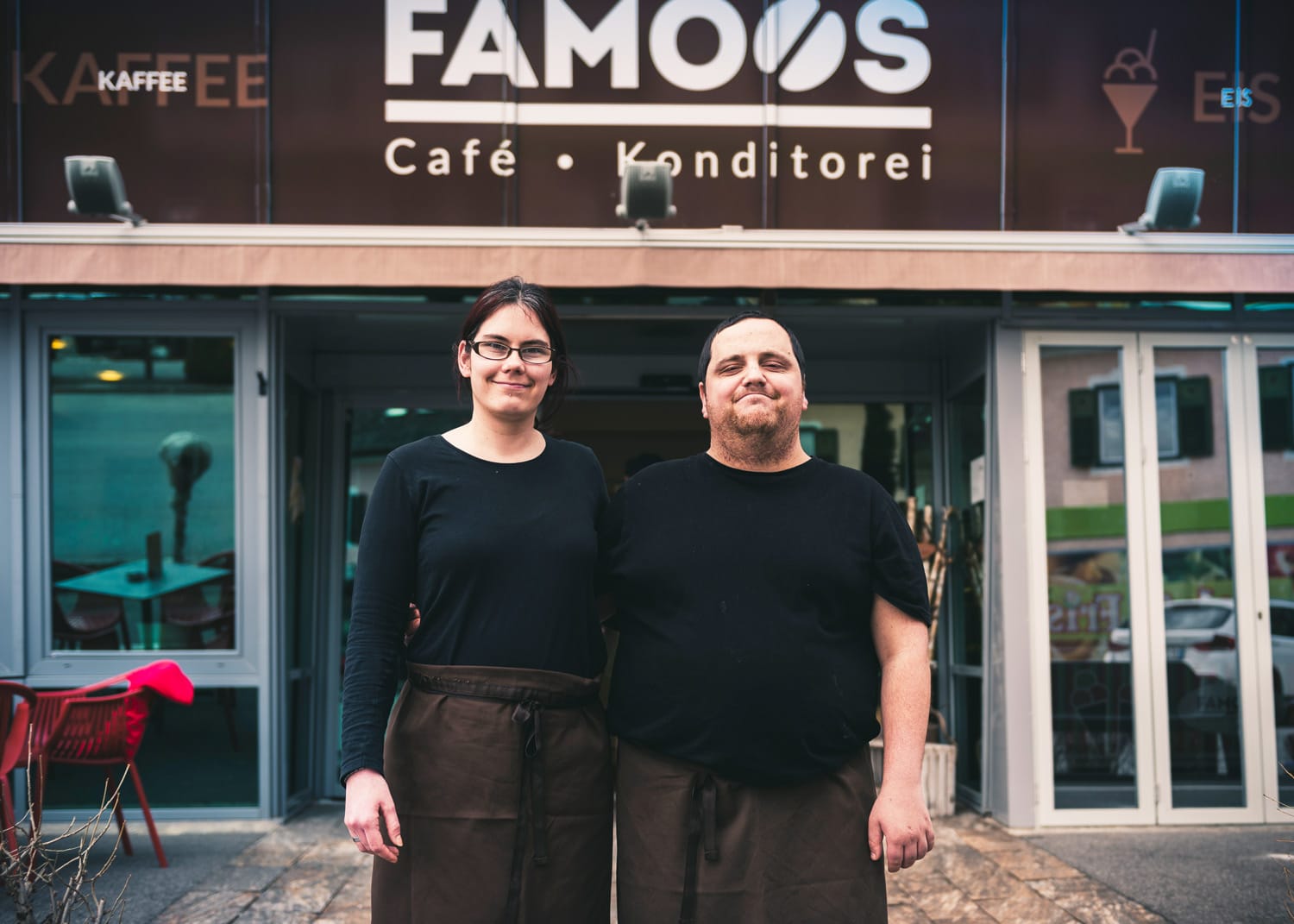
The Noughties:
Inclusion is enshrined in law
In the meanwhile, Lebenshilfe GUV had grown considerably, and was well on course to become more modern and professional: in 2002, it was structured under four administrative areas. The same year saw the launch of “Start?Klar!”, the present-day coaching project for youth, aimed at a new target group of socially disadvantaged young people.
In 2004, 40 years after the initial act, once again with the participation of the Lebenshilfe and long negotiation, the new Styrian Disability Act came into force. Introduced under the slogan “entitlement, not handouts”, it emphasised mobile care, personal assistance and other flexible services. The new act included many services already developed by Lebenshilfe GUV, whereby the concept of inclusion was now legally anchored.
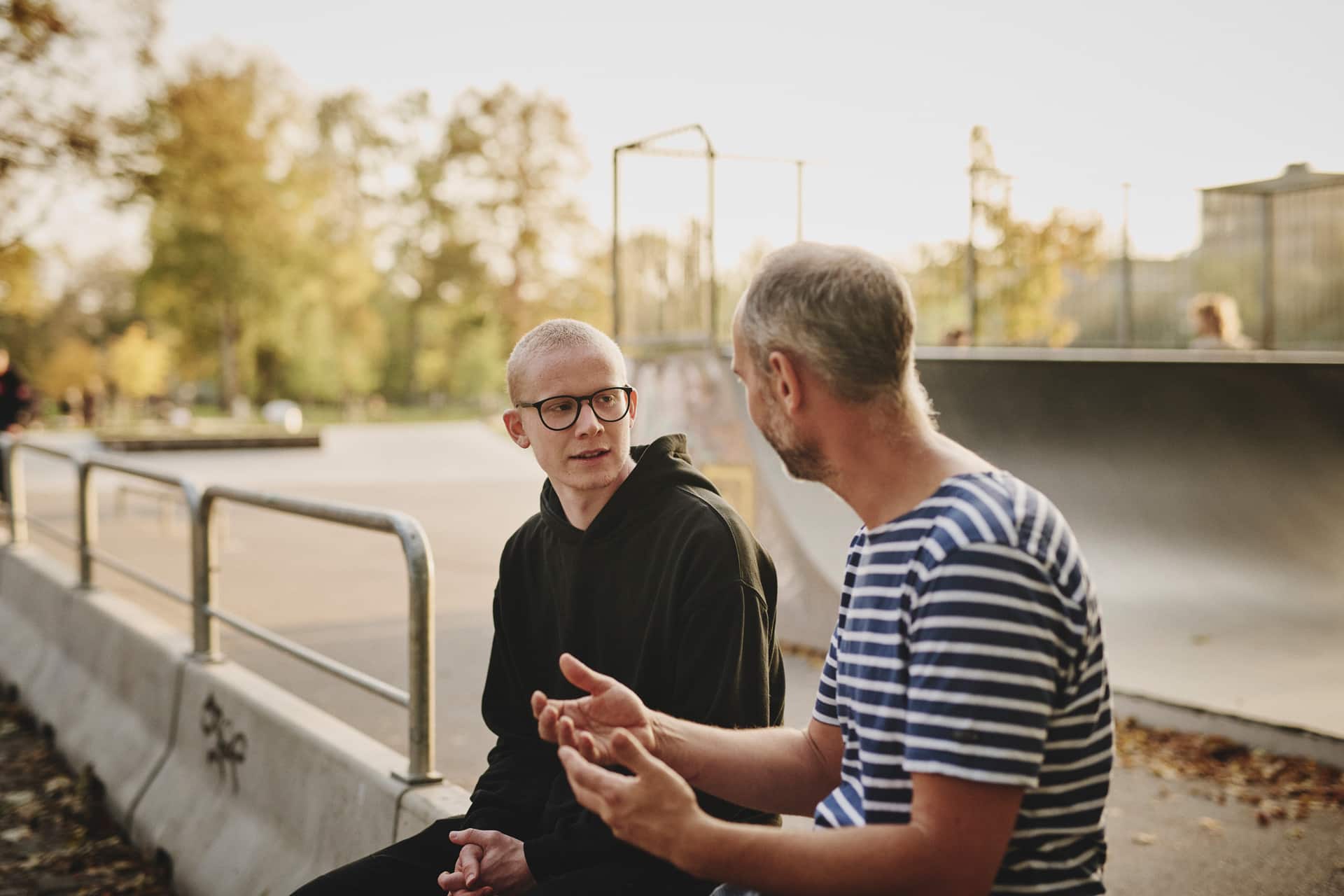
After 2010:
Lebenshilfe transforms into LebensGroß
In 2016, all operations of the association were brought under the umbrella of Lebenshilfen Soziale Dienste GmbH, which also includes the Assistenz GmbH subsidiary.
The name “Soziale Dienste“, or “Social Services”, became the dominant theme: The institution, as such, should blend into the background, while dynamic and varied support for people should take centre stage. In 2022, erfa GmbH was also integrated, and in 2023 the name was changed to LebensGroß.
Further developments at LebensGroß
2016:
- Lebenshilfe created its own facility to support asylum seekers
- The Human Rights Research Office (Forschungsbüro Menschenrechte) opens up
2017:
- The Perschlerstraße building opens in Voitsberg with a day centre for senior citizens groups and three day care centres
- The MOI (Move on to inclusion) project kicks-off, dedicated to inclusion in sport
2018:
- “Step by Step II” supports the professional integration of people who are able to work part-time
2019:
- The “Production School Prep-Module” (VOPS) project is launched to allow young people with learning difficulties to prepare for their future vocational life
2020:
- The inclusive editorial team edits news from the Kleine Zeitung newspaper and ORF TV into simple language
- The Reininghaus Residential Association opens up in the Reininghaus district. Here, for the first time, short-term apartments are also made available for people with disabilities
2021:
- The LeLi day centre for people with eating disorders starts up in Reininghaus
- Lebenshilfe organises “Digital.Perspektiven 21” – an online conference for a more inclusive digital future
- Under the MOI-Events project, people with disabilities are trained to become sports management assistants
